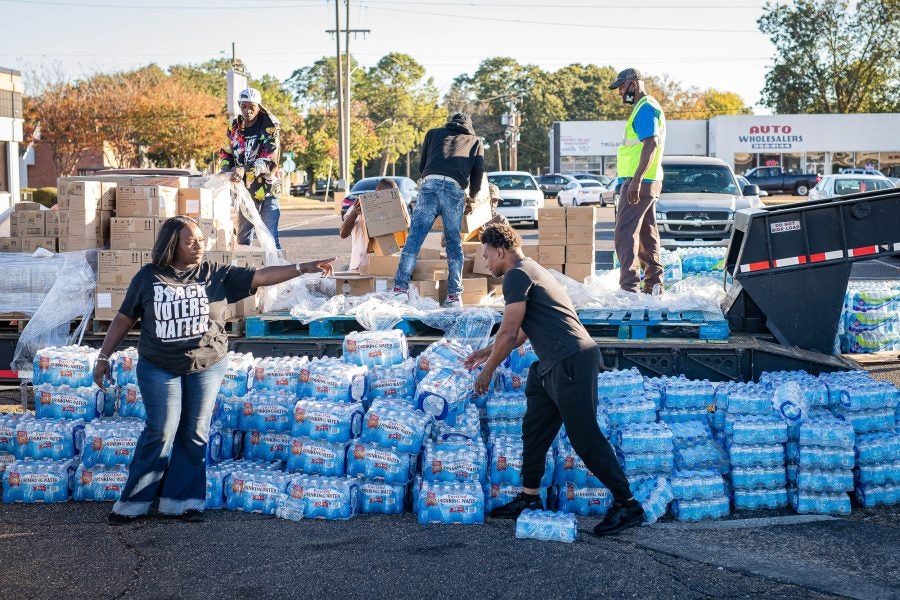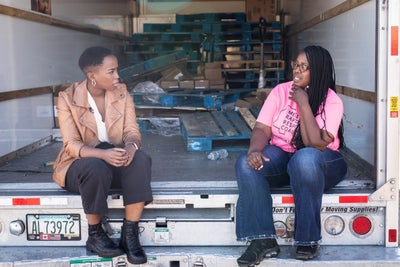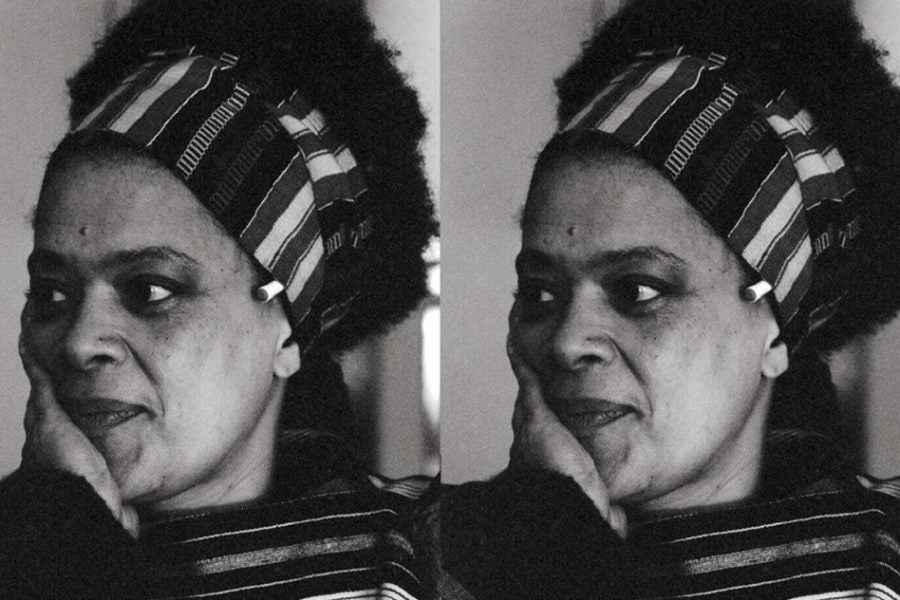
A new documentary short airing tonight on NBC News NOW, “Boiling Point: A City’s Fight for Clean Water,” brings the water crisis in Jackson, Miss. to the center stage.
Hosted by Zinhle Essamuah, the documentary aims to investigate how a capital city in America has repeatedly struggled to provide clean water to its inhabitants, a basic right which should be unheard of in an industrialized nation like ours.
While this issue has been plaguing the Jackson community for years, it became especially egregious when the city’s main water treatment facility failed after excessive rainfall in late August. Low or no water pressure “left many residents without sufficient water to drink, bathe or flush toilets.” President Joe Biden even declared a state of emergency; but months later the problems with the city’s water supply are still not fixed, and many lack trust in the system.
Unfortunately, this feels all too eerily similar to the Flint, MI water crisis, and Meeko Williams, an activist from Detroit, believes the issue in Jackson is being ignored due to the racial makeup of the city, which is 82% African-American, stating “This is racism—environmental racism at its finest.”
“Boiling Point” focuses on Jackson’s tight-knight community and life after the emergency, as the underlying infrastructure problems continue. Essamuah sat down with ESSENCE to discuss the film and why she felt compelled to join this project and help ensure that the Jackson community received the space and time necessary to discuss the reality of the crisis.

“Boiling Point” premieres tonight, December 16, 2022 at 10:30pm EST on NBC News NOW, and it can also be streamed on YouTube and Peacock.
This interview has been edited for clarity and length.
ESSENCE: At what point did you become aware of the Jackson water crisis?
The Jackson water crisis is not new—we’ve reported on it at NBC for years, and it’s actually interesting because the documentary references some of that footage from back in 2016 and the many years prior. We’ve noticed and we covered it when the flooding hit the city back in August. But I think the punchline here is that the crisis did not begin in August when that flooding knocked out the water system, and it didn’t end when the water pressure and the water returned. Our goal with this film is to help audiences see that this crisis has so many roots in the city, whether it comes from race, and debates between the city and state, and we get into all of that, ultimately centering the people at the heart of it.
ESSENCE: After being on the ground in Jackson and speaking with the community and its leaders, what do you think is the crux of the problem and how could something like this even happen?
That’s the big question—I’ve been reporting on this for over four months, and I have posed this question to every single person I’ve spoken with. We talked to Mayor Chokwe Lumumba, we’ve reached out to state officials multiple times, and we also heard from Representative Bennie Thompson. The answer is that it’s nuanced and it’s complicated, the city points the finger at the state, the state points the finger at the city.
In terms of where it comes from, we get into the historical context, and some of it is rooted in white flight. We hear from NAACP President and CEO Derrick Johnson, who talked about the impacts on the economy of Jackson when white flight occurred and the Black middle class left.
What happened from there is that the economy just broke down. Since then, investments in the water system have not been happening. When I’m talking to families in Jackson, they’re saying that with regard to the state of our water, “this is our normal.” Their normal is– in the words of the mayor who said this to me when I asked how he would characterize the water system– unreliable.
So I think it’s multiple layers and facets that led to where Jackson is today, and our film really does a powerful job of looking at it all. It’s not just from a top-down view, like hearing from the mayor, it’s also hearing from the individuals on the ground who do water distribution every single day, Monday to Friday, two hours every day.
People in Jackson have a voice, and they have been supporting themselves through this crisis for so long. Our goal in this is to really give them the microphone and the chance to share what their reality has been.
ESSENCE: Why do you think it is so vital that this story is told now?
It’s 2022, and there are people in America who don’t know if they can drink the water in their taps. To me, that as a fact, is baffling, and that’s why this story is so critical. We’re in an industrialized country, and I don’t think people expect this to happen, and when folks heard about the boil water notice in August, it may have felt like a bit of an anomaly.
But the story needs to be told now, because it’s not an anomaly for residents of Jackson. Our reporting and my time in Jackson are showing us that this is their normal, but there are also other cities. We’ve seen it in Flint, we’ve seen it around the country, that this is not an irregular occurrence, and unfortunately, it’s disproportionately impacting Black people.
Jackson is a Black city, it’s over 80 percent Black, and this is all so critical because we’re not just talking about an environmental issue, it’s an equity issue. There can be an adage in the journalism or storytelling space, along the lines of, we need to be a voice for the voiceless. But to me, no one is ever voiceless. People in Jackson have a voice, and they have been supporting themselves through this crisis for so long. Our goal in this is to really give them the microphone and the chance to share what their reality has been.
ESSENCE: You just brought up Flint. Why do you think these water issues are continually occurring in communities of color?
At the root of it is a lack of investment, and then secondly there are big question marks around where the investments that have come from the state and the federal government are going, and our reporting gets into that.
Some of the individuals we speak with in this film, many of them believe the reason they’re not getting the funding is because of race. When I asked Representative Bennie Thompson point blank, “Why do you think Jackson may have not gotten the appropriate amount of funding?” His answer was “race.” When I speak with the residents themselves, it’s a mixture of responses, but I think the core of it is that many of them just expressed, “I feel abandoned by my city and it’s a city that I love.”
I think it’s important not to lose sight of that, because for many Americans, they might hear the story of Jackson and say, “Well, why don’t they just move? Why don’t you just leave if you don’t have consistent water? I would leave.” But, for so many of the residents, this is their home. Why would they want to leave? They believe their city deserves the love and funding of any city, regardless of demographics, and so I think those are just important stories and vignettes to make sure that come across.
ESSENCE: What was one of the most impactful moments for you in making this documentary?
One moment that I could not get out of my head and will never get out of my head is when we were spending time with one of the families at the core of our film, and one of our producers asked, “What does water mean to you?” Immediately, the youngest child says, “sick,” and the producer followed-up with, “What do you mean? Water being sick?” and she says “Yes, because if you drink it, you will get sick.”
To me, that is what this story is about. It’s about the fact that even the youngest among us in the city of Jackson know that the water is not reliable for them, and that this is not the America that we’ve been promised. So this film really looks at that, from not just the policy lens, not just politicians going back and forth, but from the people affected.
These are individuals who are empowered and in some ways are taking this crisis into their own hands, getting water into the hands of their community members. I think that dovetails with the resilience of this community, and that cannot be understated. While they may be unsure that if tomorrow they’ll wake up and have water pressure, they are sure that they can rely on each other.







